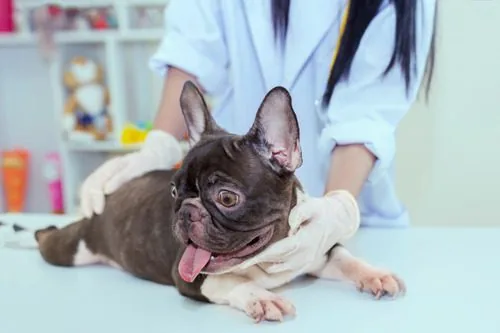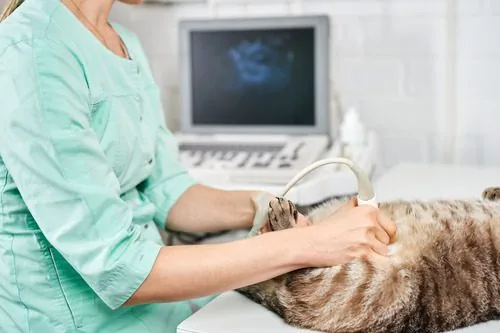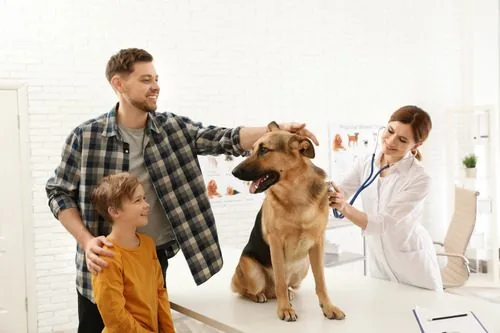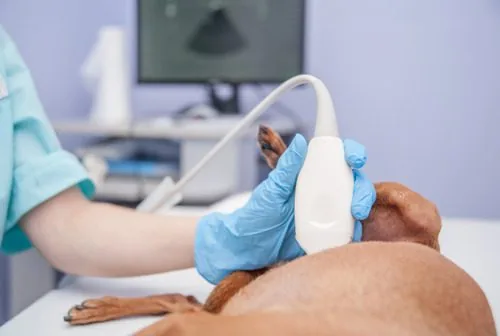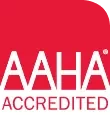Reverse Sneezing in Dogs: What it Is and When to be Concerned
As a dog owner, it can be alarming to witness your beloved pet experiencing an unusual or seemingly uncomfortable behavior. One such behavior that often causes concern is reverse sneezing.
Most of the time, reverse sneezing is harmless. However, if your dog’s reverse sneezing is persistent, paired with other symptoms, or if your dog has trouble breathing during the episodes, you should see a veterinarian.
In this article, we will explain what reverse sneezing is, its causes, and when you should be concerned about your dog’s well-being.
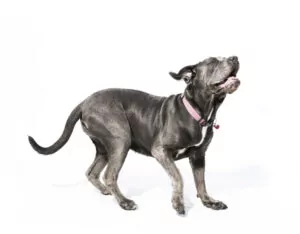
What is Canine Reverse Sneezing?
Reverse sneezing, also known as pharyngeal gag reflex or inspiratory paroxysmal respiration, is a relatively common respiratory event in dogs. Unlike a regular sneeze, which involves the forceful expulsion of air through the nose and mouth, a reverse sneeze involves rapid, forceful inhalations through the nose. This can result in a characteristic snorting or gagging sound, which can be quite startling if you’ve never heard it before.
Causes of Reverse Sneezing in Dogs:
There are several potential causes of reverse sneezing in dogs, including:
- Irritation of the nasal, pharyngeal, or sinus passages: Irritants such as dust, pollen, smoke, or strong odors can trigger reverse sneezing in some dogs.
- Allergies: Seasonal or environmental allergies can cause inflammation and irritation in the nasal passages, leading to reverse sneezing episodes.
- Infections: Bacterial, viral, or fungal infections in the respiratory tract can cause reverse sneezing in dogs.
- Nasal mites: These tiny parasites can live in a dog’s nasal passages and cause irritation, leading to reverse sneezing.
- Anatomical abnormalities: Some dogs, particularly brachycephalic breeds with short noses, may be more prone to reverse sneezing due to their facial structure.
When to Be Concerned
In most cases, reverse sneezing is a harmless and self-limiting event that does not pose a threat to your dog’s health. However, there are some situations in which you should be concerned about your dog’s reverse sneezing and seek veterinary attention.
- Frequency and duration: If your dog’s reverse sneezing episodes become more frequent or last longer than usual, it could indicate an underlying issue that requires veterinary attention.
- Difficulty breathing: If your dog appears to be struggling to breathe or exhibits labored breathing during or after a reverse sneezing episode, seek immediate veterinary care.
- Concurrent symptoms: If your dog displays other symptoms alongside reverse sneezing, such as coughing, nasal discharge, lethargy, or loss of appetite, consult your veterinarian to rule out potential health issues.
- Persistent reverse sneezing: If your dog’s reverse sneezing continues for an extended period or does not resolve on its own, it’s essential to consult with a veterinarian to determine the cause and appropriate treatment.
What to Do During a Reverse Sneezing Episode
While it can be distressing to witness your dog experiencing a reverse sneezing episode, there are a few things you can do to help them:
Stay Calm
Try to remain calm and composed, as your dog may become more anxious if they sense your distress.
Gently Soothe Your Dog
You can gently stroke your dog’s throat or cover their nostrils briefly to encourage them to swallow, which may help to alleviate the reverse sneeze.
Offer a Distraction
Sometimes, distracting your dog with a toy or treat can help to interrupt the reverse sneezing episode.
Observe and Document
Take note of the circumstances surrounding your dog’s reverse sneezing, such as potential triggers or concurrent symptoms, as this information can be helpful for your veterinarian if an examination is necessary.
5 Tips to Prevent Reverse Sneezing in Dogs
Although it’s not always possible to prevent reverse sneezing, there are some steps you can take to reduce the likelihood of episodes.
1) Minimize Exposure to Irritants
Keep your home clean and free of dust, use air purifiers to reduce airborne allergens, and avoid using strong-smelling cleaning products or air fresheners that could irritate your dog’s nasal passages.
2) Manage Allergies
If your dog suffers from allergies, work with your veterinarian to identify the cause and develop an appropriate treatment plan. This may include medication, dietary changes, or environmental modifications.
3) Maintain a Healthy Weight
Obesity can contribute to respiratory issues in dogs, so ensuring your dog maintains a healthy weight through a balanced diet and regular exercise can help reduce the risk of reverse sneezing.
4) Provide a Stress-Free Environment
Stress and anxiety can sometimes contribute to reverse sneezing episodes in dogs. Ensuring that your dog has a calm and secure living environment, with a consistent routine and plenty of opportunities for mental and physical stimulation, can help to minimize stress-related triggers for reverse sneezing.
5) Encourage Hydration
Ensuring that your dog has access to fresh water at all times can help to keep their nasal passages and respiratory system hydrated and healthy, potentially reducing the frequency of reverse sneezing episodes. Offer clean water in a suitable dish, and consider using a pet fountain to encourage your dog to drink more frequently.
Conclusion
Reverse sneezing in dogs can be a distressing event for both you and your pet, but in most cases, it is not a cause for concern. Understanding what reverse sneezing is, its potential causes, and when to be concerned can help you better care for your dog and ensure their well-being. By observing your dog during episodes, minimizing exposure to irritants, and addressing any underlying health issues, you can help to reduce the frequency and severity of reverse sneezing in your dog. If you have any concerns about your dog’s reverse sneezing or their overall health, it’s always best to consult with your veterinarian for guidance and appropriate treatment.
Are you looking for a veterinarian for your pet? Veterinary Healthcare Associates in Winter Haven, FL is here to help. Give us a call at (863) 324-3340 today!
Recent Posts
Why You Should Build Your Veterinary Career at Veterinary Healthcare Associates
Why You Should Build Your Veterinary Career at Veterinary Healthcare Associates Embarking on a veterinary career is…
French Bulldog Nose Surgery: Everything You Need to Know
French Bulldog Nose Surgery: Everything You Need to Know French Bulldogs are adored for their playful personalities…
Veterinary Diagnostic Imaging: How It Keeps Pets Healthy
Veterinary Diagnostic Imaging: How It Keeps Pets Healthy When it comes to protecting your pet’s health, veterinary…
How Much Does Hyperbaric Oxygen Therapy (HBOT) for Dogs Cost?
How Much Does Hyperbaric Oxygen Therapy (HBOT) for Dogs Cost? When your dog is facing a health…
Cat Sonogram & Ultrasound: Everything You Need to Know
Cat Sonogram & Ultrasound: Everything You Need to Know Cats have a way of concealing discomfort, making…
About Veterinary Healthcare Associates
Veterinary Healthcare Associates in Winter Haven, FL, was established over 30 years ago as Maxwell Animal Clinic by Dr. John Maxwell. Maxwell Animal Clinic was a one-doctor general practice offering preventive care, dentistry, and standard surgical services to the community. As the years passed, Maxwell Animal Clinic evolved into a thriving 10-doctor general, specialty referral, and emergency veterinary practice.


